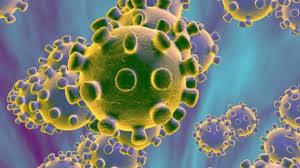I am sure that I’m not the only person who has spent noticeably more time on social media during the past year than I did before pandemic shut down. I justify my time on Facebook by explaining that it generates more traffic on my blog than any other platform on which I share my essays (although I definitely use Facebook for more than that). I can’t account for the amount of time I waste on Twitter in the same way, since just about nothing happens relevant to my blog there, even though I share my posts there every time I publish a new one.
Twitter is more like the proverbial car crash on the other side of the interstate—there is no reason for me to get involved except that I just have to look. Actually, as I explained on a blog post a couple of months ago, being on Twitter is worse than just rubbernecking. It’s like seeing a bad crash on the other side of the interstate, pulling onto the median, walking over to the accident, then telling those inside the car that only stupid people could ever find themselves in such a position, while they scream back that I am an effing moron who doesn’t deserve to exist.
 And yet, I find myself on Twitter just about every day for no particular reason other than trash-talking about sports. Every time I’m there, I can’t help but notice how often someone tweets about how sad, depressed, lonely, bored, and simply “done with this shit” they are in terms of Covid-19 and all of the ways it has disrupted, delayed, and generally messed up their lives. A couple of days ago, someone tweeted this definition of a new state of existence: Pandemic fine,” as in “How are you doing?” “Oh, fine.” “Fine” has come to mean something very different during the pandemic.
And yet, I find myself on Twitter just about every day for no particular reason other than trash-talking about sports. Every time I’m there, I can’t help but notice how often someone tweets about how sad, depressed, lonely, bored, and simply “done with this shit” they are in terms of Covid-19 and all of the ways it has disrupted, delayed, and generally messed up their lives. A couple of days ago, someone tweeted this definition of a new state of existence: Pandemic fine,” as in “How are you doing?” “Oh, fine.” “Fine” has come to mean something very different during the pandemic.
Pandemic fine—noun—a state of being in which you are employed and healthy during a pandemic but you’re also tired and depressed and feel like trash all the time.
I have many friends and colleagues who, I suspect, would immediately describe themselves as “pandemic fine” in just this way. Which worries me. Because truth be told, I don’t resonate with this definition. Despite the fact that my life, as well as the lives of everyone I know and love, has been significantly disrupted, changed, and limited in many ways by Covid-19, I am not tired, I am not depressed, and I don’t feel like trash all the time. Should I be worried about not feeling as badly as I’m apparently supposed to feel?
Jeanne and I satisfy the first part of the “Pandemic fine” definition perfectly. Both of us are fully employed; Jeanne would say that Covid-19 hasn’t really changed her work life at all, since she works from home interviewing candidates for veterinary school, something that she has continued to do without interruption or reduction since last March. My work as a college professor, if anything, has become more all-consuming over the past ten months. I’ve written several times here about what it has been like to teach during a pandemic, including this reflection commissioned by my college’s marketing and communications people last November:
It has been challenging, frustrating, exhilarating, maddening, and fulfilling all at the same time—pretty similar to what being a college professor always is like, just on steroids. But neither of us has missed a paycheck or worried for even a moment about losing our jobs.
Furthermore, both of us are in excellent health for two people in their mid-sixties. As my doctor has said for the past several years at each of my annual physicals, “You are in great shape—for someone your age.” And I am (we are). The only fly in the ointment is that I tested positive for Covid-19 early in January, after eleven straight negative tests throughout the summer and fall of 2020. I was quarantined for the required ten days with symptoms similar to a persistent cold and with noticeably reduced energy for several of those days. But no fever, I didn’t lose my ability to taste or smell, and I emerged feeling completely normal. Jeanne and I distanced in our small house as best we could, and she never caught the plague.
But according to the “Pandemic fine” definition, even being fully employed and completely healthy during a pandemic is no firewall against exhaustion, depression, and feeling like shit all of the time. So why don’t I feel any of those things? I could, inadvisably, turn this into a petty critique of people who have succumbed to negative feelings and habits when they don’t need to, but I won’t. That would be a heartless and stupid thing to do, because my sense is that I’m an outlier here. I have many friends and colleague whom I love and admire who, in both face-to-face and Zoom conversations, have expressed that they are suffering from a full-blown case of “Pandemic fine.” Checking in with what’s happening every few days on a Providence College faculty Facebook page reveals a consistent discussion thread—my gainfully employed and healthy colleagues are tired, edgy, and suffering. My occasional contributions are often dismissed by some as “naïve,” “overly optimistic,” or insensitive to the unique details of each person’s situation.
Yet, I often receive private communications from friends and colleagues within a day or so thanking me for being the “voice of reason” and helping both to lower the temperature and reduce the negativity in such conversations. So it’s worth considering why, although I have experienced Covid-19 shutdown as everyone else has, although it has disrupted my life in ways that are familiar to everyone, I am not an example of “Pandemic fine.” Some reasons are unique to my situation, while others might be something that anyone can plug into. In no apparent order . . .
- Timing. Our sons are grown with their own lives, neither Jeanne nor I have elderly parents to be concerned about, so we are not facing the young children and/or old people issues that have been made so much more complicated for so many people by Covid-19. I’m happy to tell people about how complicated our lives were thirty years ago when the boys were young, but something tells me that hearing a “You think you’ve got it bad???” story wouldn’t be particularly helpful.
- Relationship. I can’t begin to count how many times I’ve said that Jeanne and I have managed being in each other’s space 24-7 in a small house remarkably well simply because we not only love each other, we (more importantly) like each other. A friend and colleague told me that as soon as Covid-19 restrictions were lifted in China, the Chinese legal system was overrun with thousands and thousands of divorce petitions. Apparently not every married person likes her or his mate, at least not enough to be willing to spend another day with them after months of lockdown.
- Temperament. I’m an introvert, so although I have many acquaintances and colleagues, I don’t have as many close friends to be separated from as some people do. Occasional seclusion has been a regular part of my routine for my whole adult life. My introversion may also account for my believing that department meetings on Zoom are a significant improvement on in-person meetings, so much so that I propose meetings stay remote even when they don’t have to be any more. I even enjoy virtual Happy Hour at 4:00 on Fridays with my colleagues almost as much as in person. The alcohol I consume on Zoom is much better (and more expensive) than anything I can get at the local watering hole.
- Attitude. Although there are many, many things outside of our control right now, each of us has complete control over our reactions to them. After many years of teaching various philosophical and ethical systems to undergraduates, the Stoic perspective has gradually become mine, almost by osmosis. Waste no energy or time on things that you cannot control. Instead, focus your energy on what is entirely within your power: how you will respond to and process what is not within your control. Each of us can choose these responses and attitudes, no matter how overwhelming things become. Try it. It actually works.
- Faith. When Jesus said “Don’t worry about tomorrow, because today has enough worries of its own,” he was channeling his inner Stoic. Seriously, one of the ways that my faith has developed and worked itself over the years is toward a greater and greater awareness of the truth of the following from Philippians:
The peace of God, which surpasses understanding, will keep your hearts and minds in Christ Jesus . . . Practice these things, and the God of peace will be with you.
That involves both a promise and a choice. I wish you peace.












